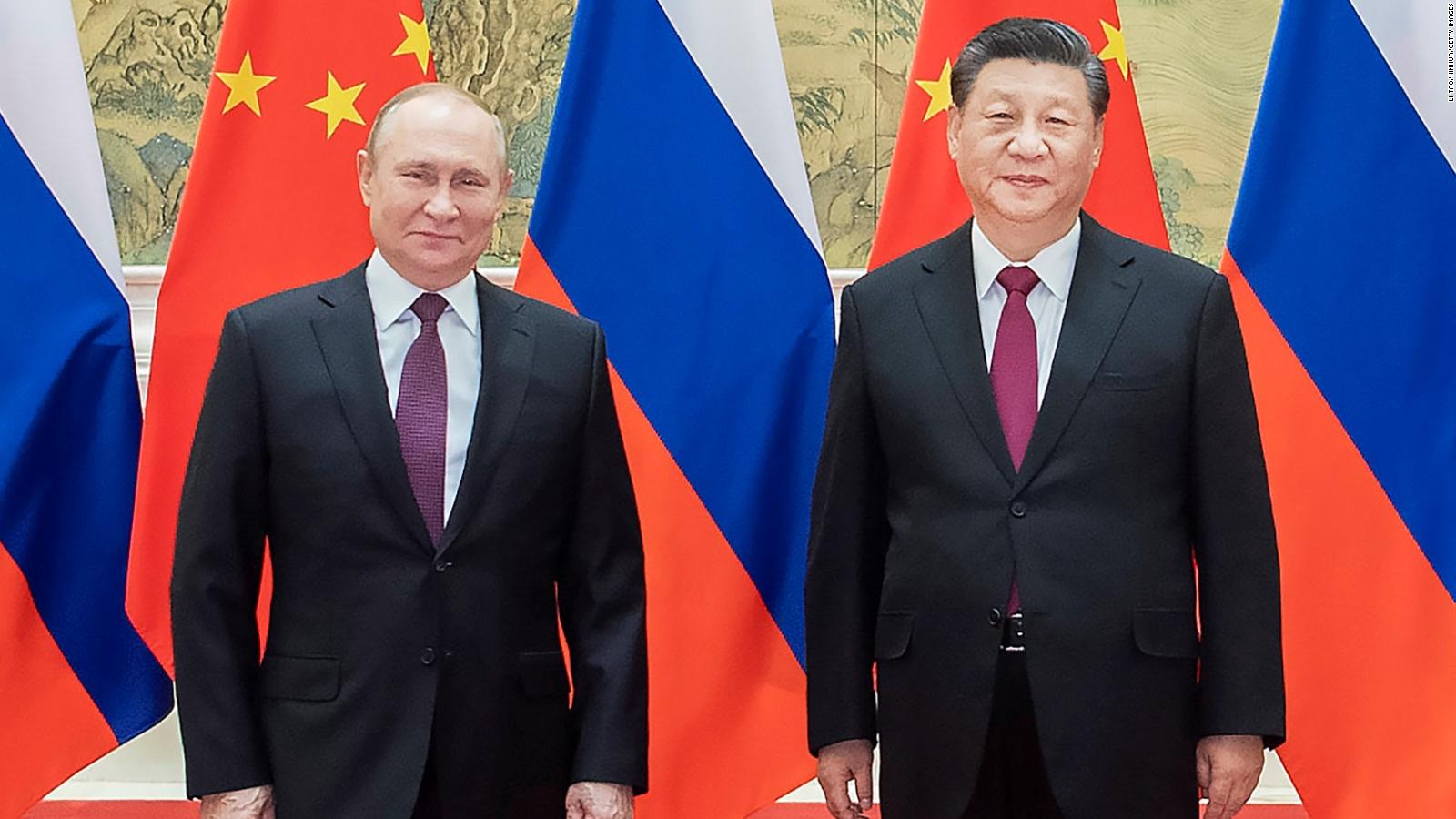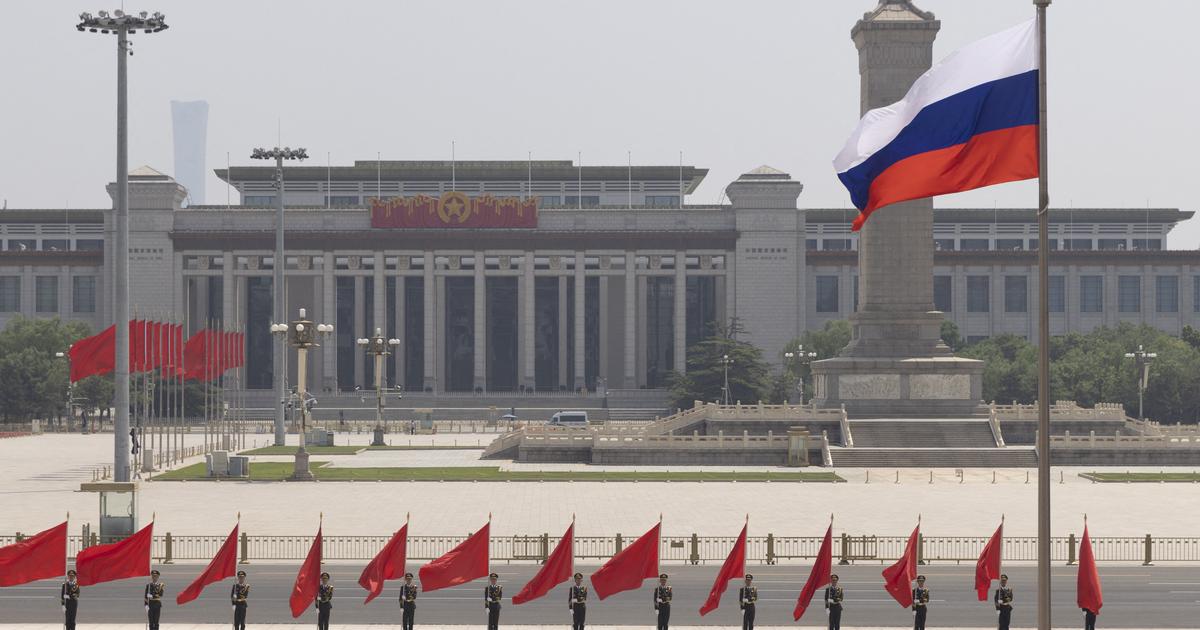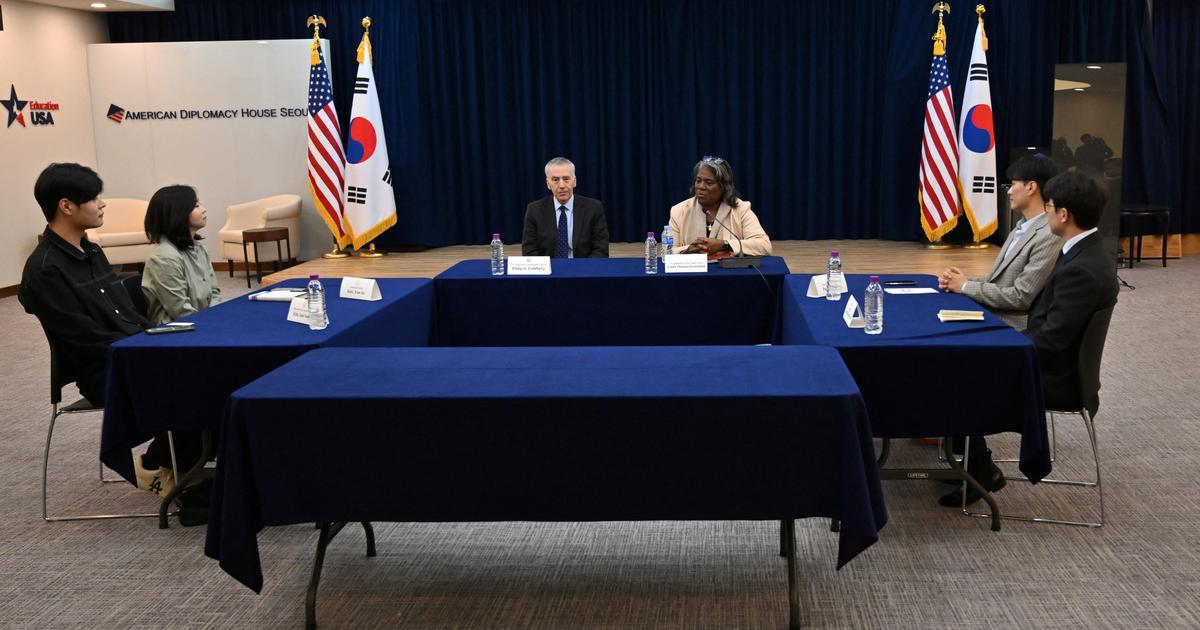Gazprom will accept payments in yuan 1:08
Hong Kong (CNN Business) --
Chinese leader Xi Jinping and his Russian counterpart Vladimir Putin will meet face-to-face this week for the first time since Moscow sent troops to Ukraine earlier this year.
When they last met in February in Beijing during the Winter Olympics, they proclaimed that their friendship "had no limits."
Since then, Russia has sought closer ties with China, while Europe and the United States responded to the invasion with wave after wave of sanctions.
Beijing has carefully avoided violating Western sanctions or providing direct military support to Moscow.
This balancing act, experts say, is a sign that Xi will not sacrifice China's economic interests to bail out Putin, who arrived at the Shanghai Cooperation Organization summit in Uzbekistan this week with his military retreating from large swathes of the country. of Ukrainian territory.
ANALYSIS |
Vladimir Putin and Xi Jinping want to create a new world order.
Russia's setback in Ukraine could ruin their plans
But the trade relationship is booming, unevenly, as Russia desperately seeks new markets and China — an economy 10 times its size — scrambles for cheap raw materials.
Bilateral goods trade has reached record levels as China is buying oil and coal to deal with the energy crisis.
Russia, meanwhile, has become one of the main markets for the Chinese currency, with Chinese companies rushing to fill the void left by departing Western brands.
advertising
record trading
China's spending on Russian goods soared 60% in August from a year ago to $11.2 billion, according to Chinese customs statistics, surpassing July's 49% increase.
Its shipments to Russia, meanwhile, soared 26% to $8 billion in August, also accelerating from the previous month.
In the first eight months of this year, China-Russia total merchandise trade rose 31% to $117.2 billion.
This already represents 80% of last year's total, which stood at a record US $ 147,000 million.
"Russia needs China more than China needs Russia," said Keith Krach, a former US Under Secretary of State for Economic Growth, Energy and the Environment.
"As the war in Ukraine drags on, Putin is rapidly losing friends and becoming more dependent on China," he added.
For China, Russia now accounts for 2.8% of its total trade volume, slightly up from 2.5% at the end of last year.
The European Union and the United States have much larger quotas.
Manufacturers of covid-19 tests continue to generate profits 1:05
China was already Russia's largest trading partner before the war, accounting for 16% of its total foreign trade.
But the world's second largest economy has taken on far greater importance for Russia, which has been plunged into recession by Western sanctions.
The Russian central bank stopped publishing detailed trade data when the war in Ukraine began.
But Bruegel, a European economic think tank, recently analyzed statistics for Russia's 34 major trading partners and estimated that China accounted for about 24% of Russian exports in June.
"Sino-Russia trade is booming because China is taking advantage of the Ukraine crisis to buy Russian energy at a discount and replace Western companies that have exited the market," said Neil Thomas, principal China analyst at Eurasia Group.
Russia overtook Saudi Arabia in May as the number one supplier of oil to China.
Moscow has held that position for three consecutive months through July, according to the latest data from Chinese customs.
China's coal imports from Russia also hit a five-year high at 7.42 million metric tons in July.
Is the yuan the new dollar in Russia?
The war in Ukraine has also fueled demand for the Chinese yuan in Russia, as Western sanctions have largely isolated Moscow from the global financial system and restricted its access to the dollar and euro.
Yuan trading on the Moscow stock exchange accounted for 20% of total trading volume across major currencies in July, down from 0.5% in January, according to Russian news outlet Kommersant.
Daily trading volumes of the yuan-ruble exchange rate also hit a new record last month, surpassing ruble-dollar trade for the first time in history, according to Russian state-controlled media outlet RT.
According to statistics released by SWIFT, the messaging system used by financial institutions around the world to process international payments, Russia was the world's third largest market for payments made in yuan outside mainland China in July, after Hong Kong and the UK.
The country did not even appear on SWIFT's list of top 15 yuan markets in February.
Russian companies and banks are also increasingly turning to the yuan for international payments.
Last week, Russia's Gazprom said it would start billing China in yuan and rubles for natural gas supplies, while Russia's VTB bank said it was launching money transfers to China in yuan.
For Beijing, it is a boost to its ambitions to turn the yuan into a global currency.
ANALYSIS |
Putin needs Xi Jinping's help more than ever after his stumbles in Ukraine
"Russia's increased use of the yuan also helps advance China's long-term goals of making the yuan a global currency, insulating itself from Western financial sanctions, and increasing its institutional power in international finance," said Thomas of the Eurasia Group.
For Russia, this partnership with China "is born out of desperation," Krach said.
"As Russia has been greatly weakened, in part by sanctions, Putin is willing to make a deal with a predatory power in order to gain access to capital," he added.
Chinese companies fill the gap
Chinese companies are also taking advantage of the exodus of Western brands from Russia.
Chinese smartphones accounted for two-thirds of all new sales in Russia between April and June, Reuters reported, citing Russia's top electronics retailer M.Video-Eldorado.
Its total share in Russia has risen steadily, rising from 50% in the first quarter to 60% in April, and then to more than 70% in June, M.Video said.
Xiaomi was the best-selling smartphone maker in Russia in July, with 42% of the market, according to Russian outlet Kommersant.
Samsung, once the market leader, had only 8.5% of the market in July.
Apple had 7%.
The two companies accounted for almost half of the Russian market before the invasion of Ukraine, but they stopped selling new products in the country after the start of the war.
Chinese cars have also flooded Russia.
Passenger vehicles of Chinese origin accounted for almost 26% of the Russian market in August, the highest figure on record, according to the Russian analytical agency Autostat.
In the first quarter of the year, the figure was 9.5%.
Major global automakers like Ford and Toyota have pulled out of Russia this year.
Limits on a "limitless" partnership between Russia and China
However, analysts point out that the China-Russia partnership also has significant limits.
China is not providing military, trade or technological support that "would risk significant US sanctions on China," said Eurasia Group's Thomas.
"Beijing will not sacrifice its own economic interests to support Moscow," he said.
Fearing a US reaction, China has so far "steadfastly" refused to violate international sanctions against Russia, forcing Moscow to request military support from North Korea, said Craig Singleton, a senior China researcher at the Foundation for the Defense of Democracies, based in Washington.
Russian officials from 18 districts call for Putin's resignation 2:36
"Beijing's refusal to violate US and international sanctions reflects its grudging acceptance that China remains dependent on Western capital and technology to sustain its ongoing development, even as Xi is personally inclined to aid Putin's war effort," he said. .
Furthermore, China's rapid economic slowdown this year will further limit Xi's willingness to help Putin.
China's president will not want to risk anything further destabilizing the economy just weeks before he is set to win a historic third term in the Communist Party congress.
what the future holds
Future relations are likely to remain tense, and China will want to keep its options open, according to analysts.
"There has always been mistrust between the two regimes, which have historically treated each other as rivals," Krach noted.
The current China-Russia partnership is primarily "defensive," reinforced by the shared view of Beijing and Moscow that NATO and the United States pose a "palpable threat to national security," said Susan Thornton, senior research fellow and visiting professor at Yale Law School.
"Russia's war in Ukraine is not in China's interest, but given Western hostility, China will not oppose Russia," he added.
Vladimir Putin Xi Jinping









